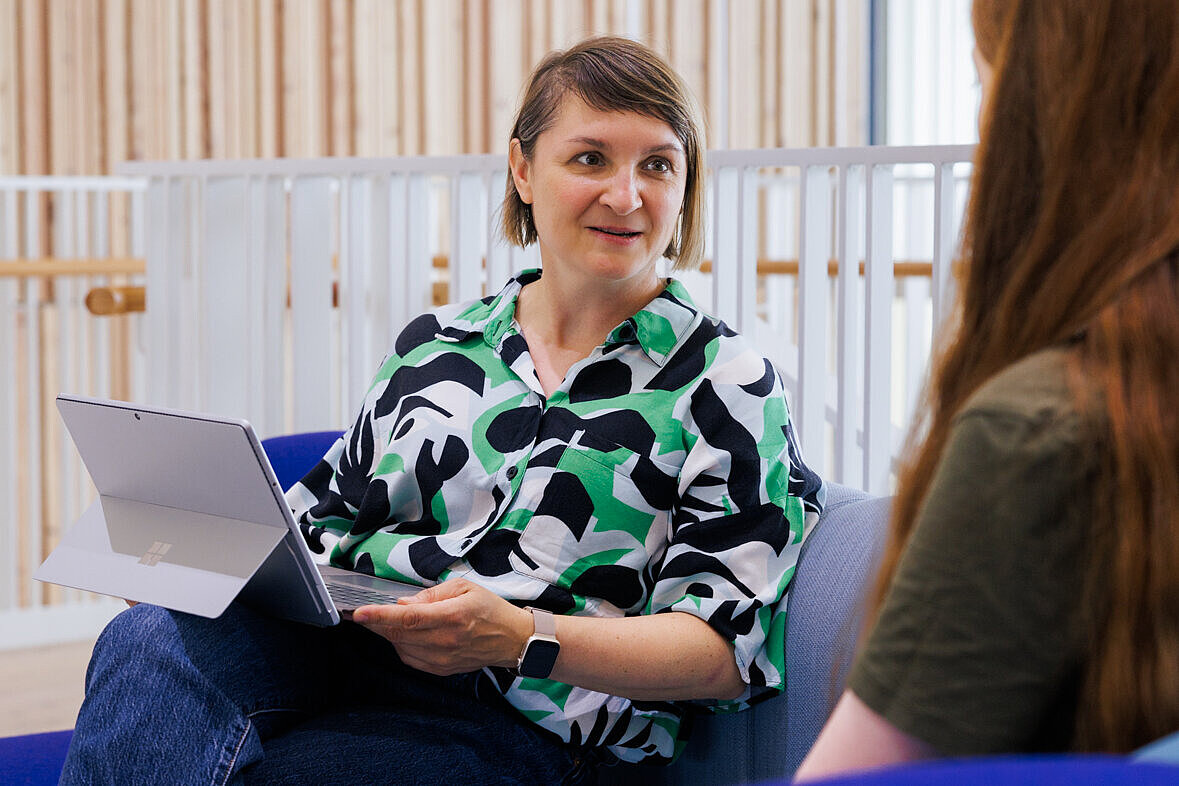No two children learn in the same way. That’s why we focus on customised learning in our secondary school. This approach is based on the idea of creating a school that adapts to your child – not the other way around. Our goal is for students to recognise themselves, with all their individual strengths and challenges, in their lessons, everyday school life and personal development. This becomes visible in three key areas: through flexible learning at different levels, through freely chosen focus areas in binding elective and profile subjects, and through targeted support.
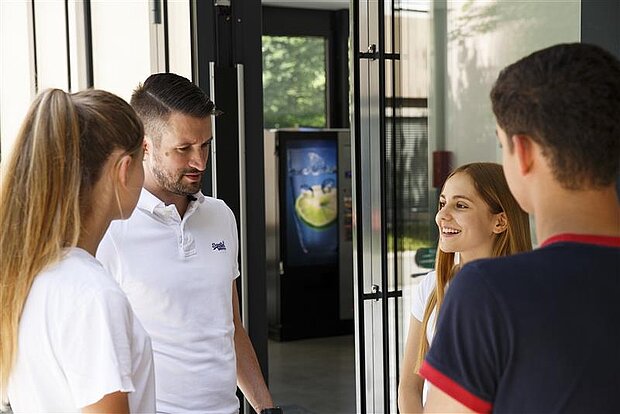
At Josef-Schwarz-Schule, we offer your child a flexible pathway between different learning levels, allowing for individual specialisation based on their personal strengths.
From year 6 onwards, our students can pursue their own interests through binding elective subjects such as French, AES (Nutrition and Home Economics) or technology. From year 8, they choose personal focus areas in languages, social sciences, the arts or science and technology. We support your child with flexible learning opportunities and plenty of room for personal growth.
Our school concept is based on the three-tiered education system in Baden-Württemberg, which allows for different school-leaving qualifications.

At Josef-Schwarz-Schule, individual learning is at the heart of everything we do. Through targeted support, we focus on each child’s personal strengths and needs.
From year 6 onwards, students can choose one of three binding elective subjects, allowing for early specialisation. The options are French, AES (Nutrition and Home Economics) and technology.
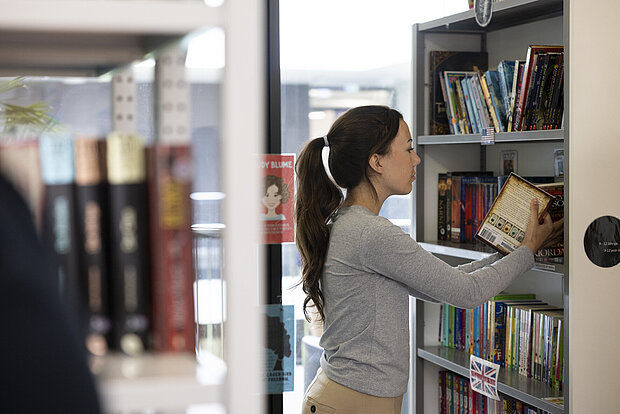
Students who wish to learn a second foreign language can choose French as a binding elective subject from year 6, in line with the Baden-Württemberg curriculum. This enables them to acquire another important world language. Lessons are designed to be practical and engaging, with role plays, everyday dialogues and creative projects.
We also plan excursions and exchange programmes with a partner school in France, where students can put their language skills into practice.
In addition, we offer preparation for the internationally recognised DELF language certificate, which can be a valuable advantage for future university or job applications.
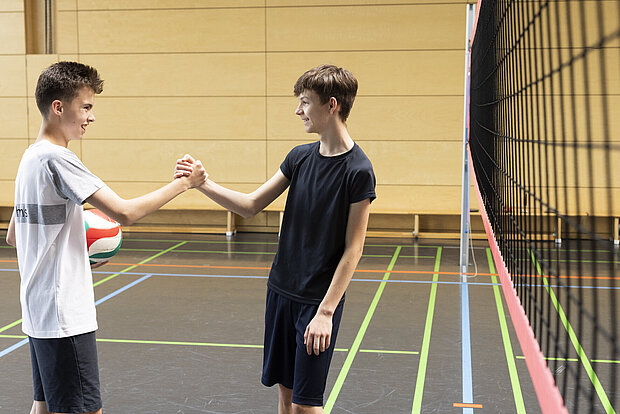
AES is one of three binding elective subjects that students choose at the end of year 5 for years 6 to 10 – and yes, for many it’s the first time they’ve heard of it!
This subject is full of practical life skills: it’s about healthy nutrition, sustainable action, consumer behaviour and social responsibility. Lessons are hands-on, with projects, cooking, reflection and teamwork. AES promotes essential everyday competencies and raises awareness of social and environmental connections.
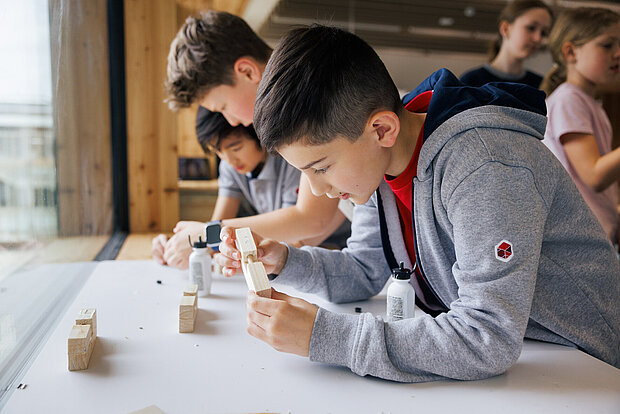
The binding elective subject technology is aimed at students from year 6 onwards who enjoy experimenting, constructing and bringing their own ideas to life. It combines creative design with technical understanding – from developing simple electrical circuits to planning a dream house. Students work with different materials such as wood, metal or plastic.
Current topics such as sustainable energy, automotive technology and smart control systems are also part of the curriculum. Technology promotes practical thinking, problem-solving and teamwork – regardless of the qualification a student is aiming for.
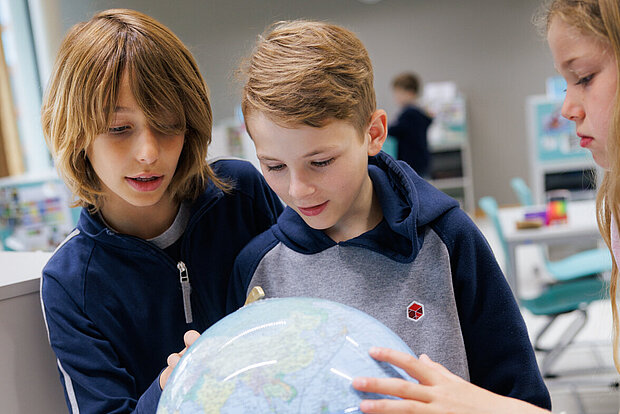
From year 8 onwards, students set a second academic focus by selecting a profile subject. Options include NWT (science and technology), IMP (informatics, mathematics and physics), Spanish, PE or art.
From year 11, college students can also choose Spanish as a new foreign language. In year 12, our college offers a wide range of subjects, with a particular emphasis on computer science, natural sciences and economics.
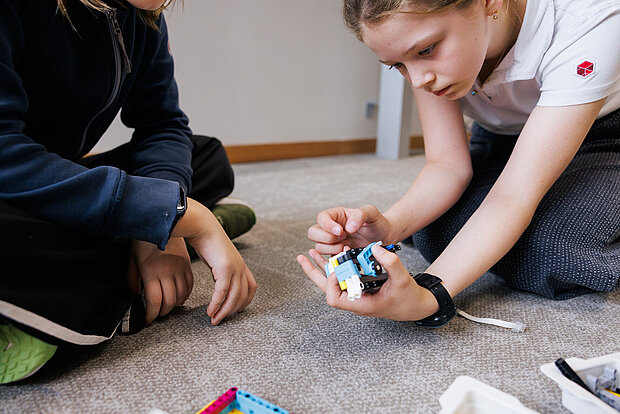
The NWT (science and technology) profile subject provides a hands-on specialisation in scientific and technical fields. Students work on interdisciplinary projects that combine theory with practical application, such as developing their own energy bar.
They apply scientific methods, design technical solutions and strengthen their analytical thinking, creativity and teamwork. This subject lays strong foundations for future studies in the natural sciences.
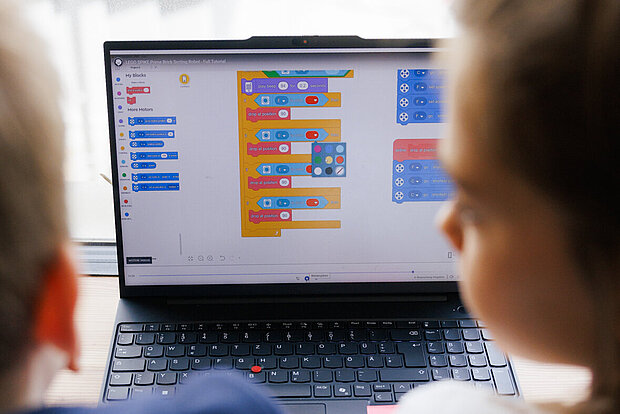
In the IMP (informatics, mathematics and physics) profile subject, content from computer science, mathematics and physics is integrated into real-world projects. Students learn programming languages, work with microcontrollers such as Arduino and develop their own software solutions.
This subject strengthens logical reasoning, problem-solving skills and technical understanding. IMP prepares students for further studies and careers in the STEM field and equips them with vital skills for the digital future.

The Spanish profile subject gives students the opportunity to acquire a global language and broaden their intercultural awareness. Lessons focus on communication, cultural insights and regional knowledge.
Authentic materials and interactive activities make language learning engaging and effective. Spanish skills open doors to a variety of international study and career paths.
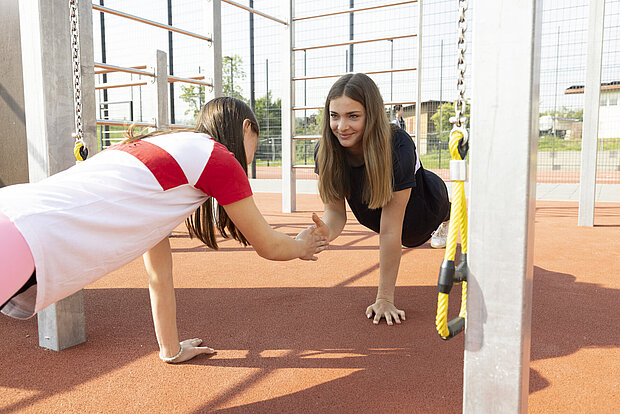
The PE profile subject focuses on developing physical fitness, team spirit and athletic performance. Students explore different types of sport, improve their coordination and motor skills, and learn to take responsibility within a group.
They also gain insight into training methods, sports science and healthy lifestyles. PE promotes confidence, discipline and social skills.

The art profile subject combines practical creativity with theoretical understanding. Students realise their own artistic ideas while learning to analyse and contextualise artworks using both traditional techniques and digital media.
This subject nurtures creativity and aesthetic judgement, helping students to develop their individual artistic expression.
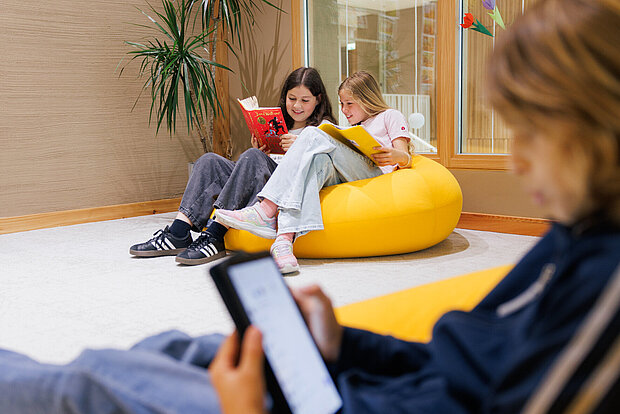
The education system in Baden-Württemberg follows a three-tiered structure based on students’ individual performance levels.
At Josef-Schwarz-Schule, we want our students to realise their full potential while supporting them in meeting their individual challenges appropriately.
In general, the grammar school level serves as our starting point for all subjects, while students working at other levels receive differentiated support according to their needs.
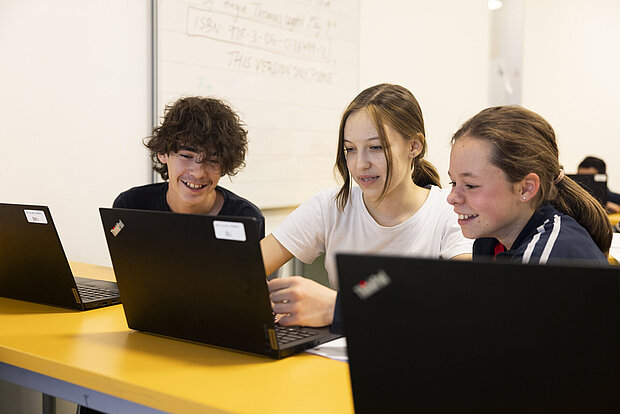
Our students can choose between three learning levels in each subject: the basic level leads to the Hauptschulabschluss (basic secondary qualification), the intermediate level leads to the Mittlerer Schulabschluss (intermediate secondary qualification), and the extended level prepares for the Abitur (German university entrance qualification, comparable to British A-Levels).
For example, a student may study mathematics at grammar school level while working in French at intermediate level. Only in year 9 do students make a final decision on which level they will continue with and which qualification they wish to aim for.
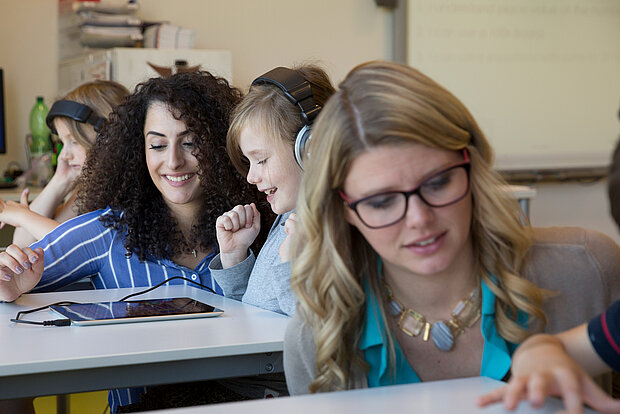
To make it possible for students to work at different levels within the same class, two teachers are present in all core subjects: one main subject teacher and one assistant teacher (AT).
The AT helps students who are working at a different level to follow the lesson effectively – for example, by offering additional explanations, adapted tasks or small-group support.
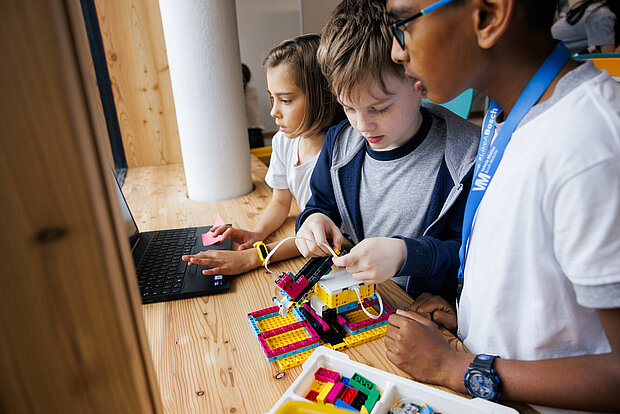
From year 5 onwards, our students acquire essential skills in the use of digital media. They learn how to use computers safely, work confidently with standard office applications and act responsibly online.
Their first programming experience comes through working with Lego Mindstorms robots in the subject biology, natural phenomena and technology (BNT). Particularly interested students can also join the Lego Robo Club and become part of our First Lego League team.
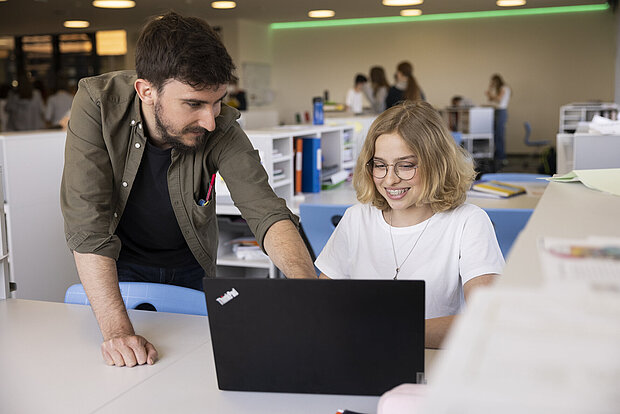
From year 8 onwards, students have the opportunity to choose the profile subject IMP (informatics, mathematics and physics). Here, they learn to solve physical and mathematical problems using their own programmes in various programming languages.
In year 8, students are introduced to text-based programming with Arduino, a small single-board computer that allows them to control complex sensors and actuators.
In year 9, the focus shifts to learning the basics of software programming using the Python programming language. The skills acquired are applied in independent projects, where students are also introduced to the SCRUM framework for agile project work.
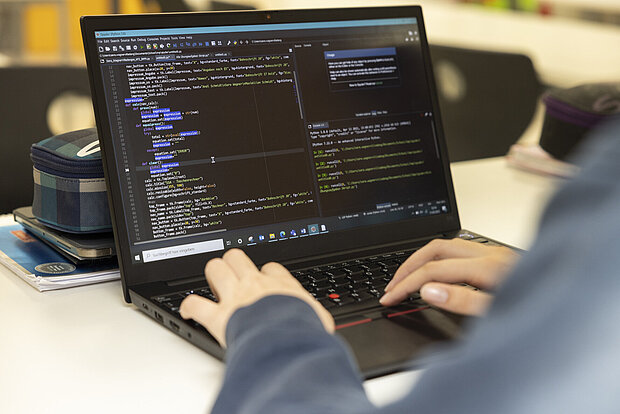
In the upper secondary school (college), preparation for the Abitur (German university entrance qualification, comparable to British A-Levels) in informatics is intensified. A so-called “informatics bridge course” provides access to informatics at Abitur level even for those students who have not previously taken the profile subject IMP. In addition, topics such as Java and web design are explored in greater depth within IMP.
The programming skills gained in the middle school years – including C++, Python and Java – are further developed and expanded through in-depth knowledge of databases, technical informatics and theoretical informatics.
The transition from school to working life or further education is a big step for young people. That’s why it’s so important to start exploring one’s own interests and goals early on: What are my strengths? Which career suits me? How do I apply successfully? Should I work towards the Abitur?
In the subject WBS (economics, careers and study orientation), students explore the question: “What suits me – both professionally and personally?” Activities include optional participation in the Girls’ & Boys’ Day, a national careers event held in cooperation with well-known regional companies, as well as a work placement in year 9.
